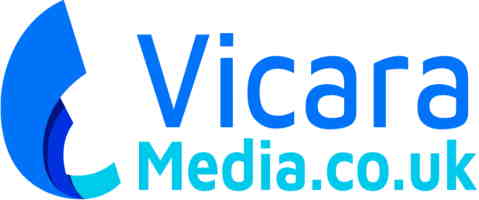On June 7-8, 2022, University of Phoenix’s Kimberly Underwood, Ph.D., MBA, took part in the Jobs for the Future (JFF) Horizons Conference in New Orleans, Los Angeles. JFF is a national nonprofit that dedicates itself to transforming American workforces and education systems. The nonprofit also oversees the Horizons event, which aims to build community and collaboration in the education sector and offers attendees the opportunity to reconnect, reimagine and rebuild with the goal of equitable economic advancement.
Jobs for the Future and University of Phoenix
In February 2022, JFF and the University of Phoenix Career Institute® announced a collaboration that focused on offering support for Black learners and workers in building professional social capital to enhance their careers. Professional social capital refers to the resources that arise from a person’s network of relationships that can help mobilize and advance education and career goals. It is a key element in the establishment of racial economic equity in the workforce.
Under the JFF and University of Phoenix collaboration, JFF has performed a comprehensive market scan that analyzed existing strategies for the development of professional social capital currently implemented by community-based organizations, postsecondary institutions, employers, and nonprofits. The University provided funding for the professional social capital project, which is titled “Building Professional Social Capital for Black Learners and Workers.”
As part of the report, JFF has identified five crucial action and engagement-centered strategies that social capital development programs can incorporate to build professional social capital for Black learners and workers. These strategies include:
1. Elevating Current Assets
Programs that embrace this strategy commence the process of aiding learners and workers to build professional social capital by focusing on the strengths of participants rather than focusing on what they might lack.
2. Building Relationships
The goal of programs that emphasize the importance of building relationships is to connect learners and workers with individuals who can share sustained, supportive relationships.
3. Making Connections and Introductions
The goal of facilitating connections and introductions is to help learners and workers meet people who can assist them with specific immediate needs. This does not necessarily mean establishing long-term relationships, although introductions focused on short-term goals can lead to long-term relationships.
4. Career Onboarding
Activities related to career onboarding aim to help learners and workers connect to the next steps in their career journeys in ways that set them up for success. These activities also involve connecting next steps to the rest of the journey and ensuring that these steps match the individual’s needs in terms of pay, scheduling and support.
5. Continuous Learning Journey
It is essential to provide people with the skills and strategies that enable them to continue building and activating professional social capital so they can benefit from their networks and relationships (and the information and resources these offer), no matter where they are in their careers and learning journeys.
Collaborative Report Identifies Actionable Strategies for Change
During the conference, Underwood, who is chair of the Center for Workplace Diversity and Inclusion Research (CWDIR) with University of Phoenix’s College of Doctoral Studies, and Michael Collins, who is the vice president of JFF, presented the findings of this professional social capital project. Speaking at a panel discussion on the explicit, strategic and comprehensive professional social capital building strategies for all education and workplace settings, they focused on settings that aim to remove barriers and accelerate opportunities for Black learners and workers.
Collins remarked that “strong professional networks are often the bedrock of success, providing workers with connections and resources that help them prepare for, enter and succeed in well-paid careers that provide opportunities for economic advancement.” He explained that “these networks are important — and often out of reach — for Black learners and workers, who are underrepresented in many high-wage, high-growth occupations” and added that the insights in the JFF report identify effective action-oriented strategies that can be adopted within education and workforce systems to create the conditions necessary for equitable economic advancement.
Underwood commented on the collaboration project findings, stating that to fully honor the mission of preparing productive skilled workers for today’s workforce, postsecondary institutions must provide the educational and social components these workers need to thrive. She concluded that practitioner-based programming is one way to achieve this goal, as faculty with extensive, hands-on experience in the workforce often teach these programs. This way, students can gain an understanding of the social skills required to navigate their respective industries.
Making Professional Social Capital Opportunities More Accessible
University of Phoenix and JFF have established a partnership to map the landscape of programs specially designed to help Black learners and workers build professional social capital. The “Building Professional Social Capital for Black Learners and Workers” report offers key insights and strategy implementation guidance to make opportunities for professional social capital more accessible to these individuals.
About University of Phoenix
University of Phoenix is dedicated to advancing the educational goals of adult and nontraditional learners and supporting students as they navigate career options and degree programs most suited to their interests. The University’s degree programs are aligned with many in-demand career paths including in cybersecurity, nursing and business, and they offer flexible start dates, online classes and numerous scholarship opportunities to make it possible for anyone to earn the degree they require.
In addition, University of Phoenix’s Career Services for Life® commitment to active students and graduates provides the necessary resources for these individuals These services include resume and interview support, career guidance and education and networking opportunities. For more information, visit www.phoenix.edu.
The services of CSFL are for aiding preparing for job searches and interviews; to say that they keep people “competitive” in the workforce is not accurate to the scope of the service.

